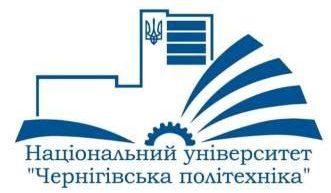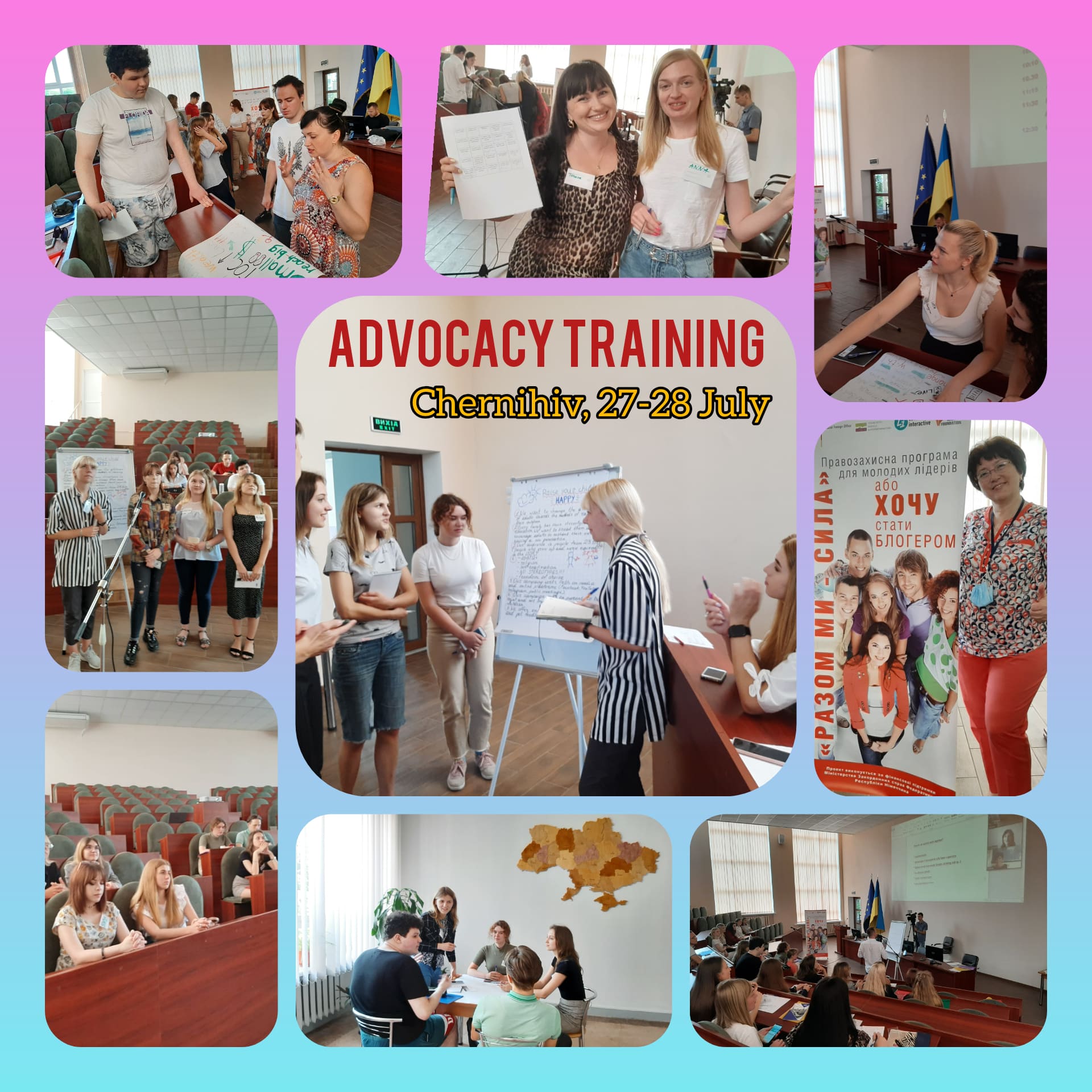Lyudmyla Remnova.
For two days (June, 27-28) Together We Can! Advocacy Training in Chernihiv has become a space for sharing international experience and views on vital social problems, working out approaches to conducting successful advocacy campaigns, effective collaboration and powerful networking. The international trainers Wiebke Eltze (Cultures Interactive e.V., Germany) and Magdalena Swider (The Anti-discrimination Education Society, Poland) were holding online training sessions via Zoom and thanks to using modern media technologies had an opportunity to facilitate training process in a real-time regime and observe all activities in the co-working space in the Chernihiv Polytechnic National University.
The main focus of the training was to give participants clear knowledge and up-today skills in conducting advocacy work basing on the European best practices and trainers’ background and real experience in providing successful advocacy campaigns. The Advocacy Training participants had a possibility to clarify different aspects of advocacy definition, discuss examples of advocacy work they can spot around them, better understand the main methods of advocacy work and evaluate its visible and not visible results, learn how to use Gammma+ Model for planning successful advocacy campaigns and how to introduce digital tools to reach politicians / decision-makers.
The most effective part of the training was the group work on preparing campaigns as a powerful advocacy tool. The participants picked topics they are interested in and worked out an outline of an awareness-raising campaign using so called Gammma+ Model. Thus, during teambuilding activities the groups had to find answers to very important questions: 1. What is the theory of change of your campaign? 2. Do you have clear, realistic and measurable goals ( the big goal and smaller ones)? 3. Do you (and your team) have a deeper understanding of your campaign‘s target audience? 4. Are the messages relevant/ important for the target audience and resonate with their needs/ interests? 5. Does your campaign work with the target audience‘s preferred medium or online platforms? Do you also try to reach to them offline? 6. Which call to action does your campaign offer? 7. Which opportunities for sustained dialogue (online & offline) do you offer? How to make your campaign successful?
Together with our German and Polish partners the participants presented their group results and discussed how best to talk and blog about human rights related work in our communities to get as many people as possible involved.
We are very grateful to our partners from Germany and Poland, Human Rights Foundation, all participants and organizers from the Chernihiv Polytechnic National University for the high level of that event.
The project “Together We Can” is implemented by Chernihiv Polytechnic National University together with the public organization “Way to the Future” with the support of the NGO “Human Rights Foundation”, Cultures Interactive e.V. (CI, Germany), The Anti-discrimination Education Society (TEA, Poland). The project is funded by the Ministry of Foreign Affairs of the Federal Republic of Germany.
#HumanRightsFoundation
#ФундаціяПравЛюдини
#Чернігів
#Чернігівська область
#РазомМиСила
#TOGETHER_WE_CAN
#ChePolytech
#Che_Polytech
#60років_ЧНТУ
#ЧНТУ
#люблю_чнту
#найкращийунівер

